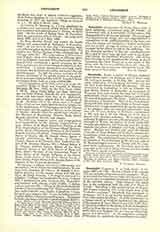

Deusdedit, CARDINAL, b. at Todi, Italy; d. between 1097 and 1100. He was a friend of St. Gregory VII and defender of his reformation measures. Deusdedit joined the Benedictine Order and became a zealous promoter of ecclesiastical reforms in the latter half of the eleventh century. Pope Gregory VII raised him to the cardinalate with the title of S. Pietro in Vincoli. According to the superscription of chapter 420 (former reckoning 161) in the fourth book of his “Collectio canonum”, Deusdedit had sojourned in Germany; but it is not known, however, when and from what motive he did so. In 1078, he took part in a Roman synod, at which he represented the opinions of Berengarius of Tours (Mansi, Conc. Coll., XIX, 762). In the long conflict for the freedom of the ecclesiastical authority from the oppression of the civil power Deusdedit sided with Gregory VII, and was one of his chief agents and defenders. At the suggestion evidently of this pope, he undertook the compilation of a collection of canons which he completed in 1087 and dedicated to Victor III (Collectio canonum, ed. Martinucci, Venice, 1869; ed. Victor Wolf von Glanfell, Paderborn, 1905). It consists of four books: the first book (327 chapters) treats of the power of the Roman Church; the second (163 chapters) of the Roman clergy; the third (289 chapters) of ecclesiastical matters; the fourth (437 chapters) of the liberty of the Church and her ministers and of the immunities of the clergy. These canons were partly taken from earlier collections, e.g. that of Burchard of Worms, partly from the original documents found in the archives and the library of the Lateran palace. The sources of the collections are to be found in Holy Scripture, the councils, letters of popes, writings of the Fathers, letters of temporal rulers, and civil laws. He meant by this work to defend the rights and liberty of the Church and the authority of the Holy See, in keeping with the measures of Gregory VII and his adherents. At the same time, this collection reveals Deusdedit as one of the most important of the pre-Gratian canonists. Under Urban II (1088-1099) he published in the interest of the Gregorian reforms another work: “Libellus contra invasores et symoniacos et reliquos schismaticos” (ed. Mai, Nova Bibliotheca Patrum, VII, III, 77-114; ed. Sackur, Mon. Germ. Hist., Libelli de lite, II, 300-365). This work was first published in a short, then in an enlarged form, the latter completed in 1099. In this work, important for the history of the investitures conflict under Urban II, the author points out that the temporal power has no authority in ecclesiastical matters and particularly no right to exercise ecclesiastical investiture. Sackur (see below) has made it probable that the so-called “Dictatus Paple” (see Pope Gregory VII) were composed by Deusdedit. These are twenty-seven short theses concerning the privileges of the Roman Church and the pope [ed. Jaffe, Bibl. Rer. Germ., (Berlin, 1864-) II, 174]. Until quite recently Gregory VII himself was generally regarded as the author; Lowenfeld (see below) continued to maintain the authorship of Gregory, but Sackur, however, has shown that the “Indices capitulorum” in the “Collectio canonum” of Deusdedit are closely related to the brief theses known as “Dictatus Pap” both in respect of sense and verbal text. Most probably, therefore, the latter are taken from the collection of Deusdedit, who put them together from the “Registrum Epistolarum” or letter-book of Gregory. Possibly also Deusdedit was the editor of this famous and important collection of Gregory’s correspondence. In this case, the cardinal appears in a new light as intimate counsellor and intellectual heir of Gregory VII. On April 4, 1100, a certain Albericus appears as titular priest of S. Pietro in Vincoli; therefore Deusdedit was then no longer alive.
J. P. KIRSCH

